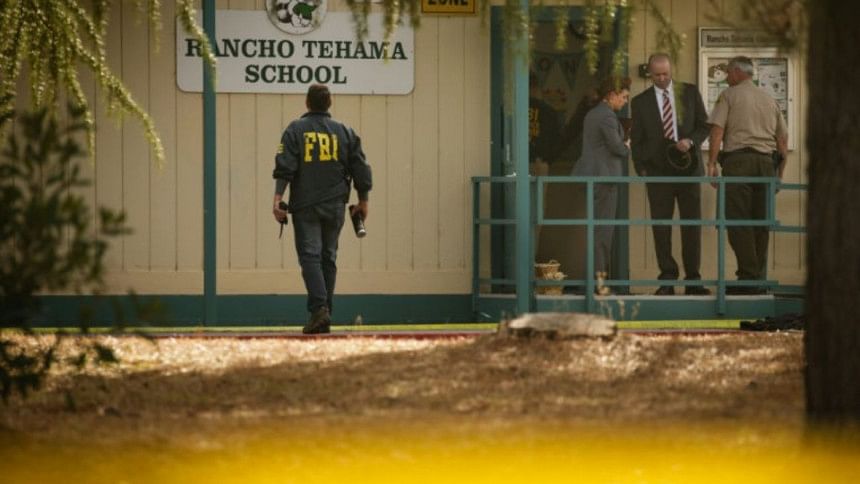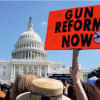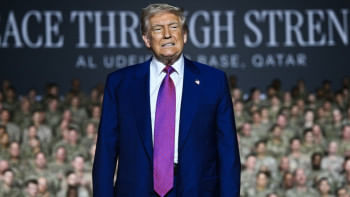America's grim reality of gun violence

On the night of October 1, 2017, Stephen Paddock, from his hotel room on the 32nd floor of the Mandalay Bay hotel in Las Vegas, sprayed bullets at 22,000 concertgoers, killing at least 59 people and injuring more than 500 in the deadliest mass shooting in US history. Twenty-three guns were found in his room and more in his house later.
A month later, on November 5, a man in black opened fire on a rural church in San Antonio, South Texas, killing 26 people including children, and wounding about 20 others. Then on November 14, a gunman in northern California killed four people, and it was later found that he had fatally shot his wife and stashed her body beneath the floorboards of their home.
The US is one of the very few countries in which a right to bear arms is protected by the constitution. With 4.4 percent of the world's population it has an estimated 310 million firearms, almost half of the world's civilian-owned guns. Three percent of the population own half the guns and 74 percent of gun owners say that it is essential to their sense of freedom. An average of 19 children are killed or injured by guns every day in the US. Since the Sandy Hook shooting in December 2012, there have been at least 1,552 mass shootings. For comparison, Japan had only one gun-related death in 2015.
Even the deadly Sandy Hook shooting did not lead to tighter gun control. Instead people flocked to gun shops to buy more. When a mass shooting takes place those who support gun rights argue that it is not right to bring up "political debates" in the aftermath of a tragic disaster. For instance, former Louisiana Governor Bobby Jindal, a strong supporter of gun rights, criticised former President Obama for trying to score "cheap political points" when he called for tighter gun control after a mass shooting in South Carolina. Wayne LaPierre, the CEO of the National Rifle Association (NRA), once claimed, "The only thing that stops a bad guy with a gun is a good guy with a gun." This is false. States with more guns or lax gun control have more deaths by shooting, including suicides.
The US is the largest importer and exporter of small arms and light weapons. At least 45 states in the country allow some form of "open carry" of firearms while 27 states have "stand your ground" laws that allow citizens to use guns if they feel that their lives are threatened. The highest number of firearm deaths is among African Americans, while white American children have the highest rate of accidental deaths by firearms. More gun ownership means more policemen killed or killing and more suicides.
An analysis of firearm mortality by state in 2015 was done by the Centers for Disease Control and Prevention (CDC). The top three states with the highest number of deaths (by firearms) per 100,000 people were found to be Texas, California and Florida, while Rhode Island, Hawaii and Vermont had the lowest. More lives have been lost in gun-related deaths in the US since 1968 than there have been deaths of American citizens in all the wars the country has fought, wrote Nicholas Kristof in The New York Times.
Interpretation of the Second Amendment to the US Constitution, which gives citizens the right to bear arms, has raised much controversy. It states, "A well regulated Militia, being necessary to the security of a free State, the right of the people to keep and bear Arms shall not be infringed." It was adopted in the early years of independence when the federal system was still often a suspect. Before 1900, Supreme Court rulings held that it applied only to the federal government and not individual states. However, later the Supreme Court ruled that regardless of laws in individual states which restricted ownership of guns by individuals (i.e. not in state militias), they did have the right to have guns for lawful self-defence in their homes. Americans with a "frontier mentality" believe that this is an inalienable right. Sadly, this belief, backed by the powerful gun lobby, has cost far too many lives.
California's Mulford Act enacted in 1967 banned the open carrying of loaded firearms in public places. The Gun Control Act of 1968 banned gun sales to most felons, drug users, and mentally ill people.
But since the 1970s the NRA has fought back, with considerable success. Just last year, the NRA reportedly spent USD 55 million in the 2016 election, although insiders claim that the total is far greater. In many states congressmen and senators know that NRA's support or opposition can be a decisive factor in their success or failure in elections.
The human mind is unpredictable. A sudden shock, a drunken rage, vicious anger or mental instability can lead to an impulsive, violent act bringing about tragic consequences if firearms are readily available. The fact is that more gun control is necessary to bring down the number of gun-related deaths.
Another scary reality is that men like Stephen Paddock who have no prior record of crime or insanity have the available means to kill. Some gun rights advocates would accept banning automatic weapons—although to simply draw the line there is not nearly good enough.
Gun control is one of many realms of polarisation in American politics. Despite much opposition to the gun lobby, especially among Democrats, the shameful fact remains that the carnage of innocent lives continues with little sign of change in the future, particularly in an America led by President Trump.
When will America see reason?
Selina Mohsin is a former ambassador.










Comments